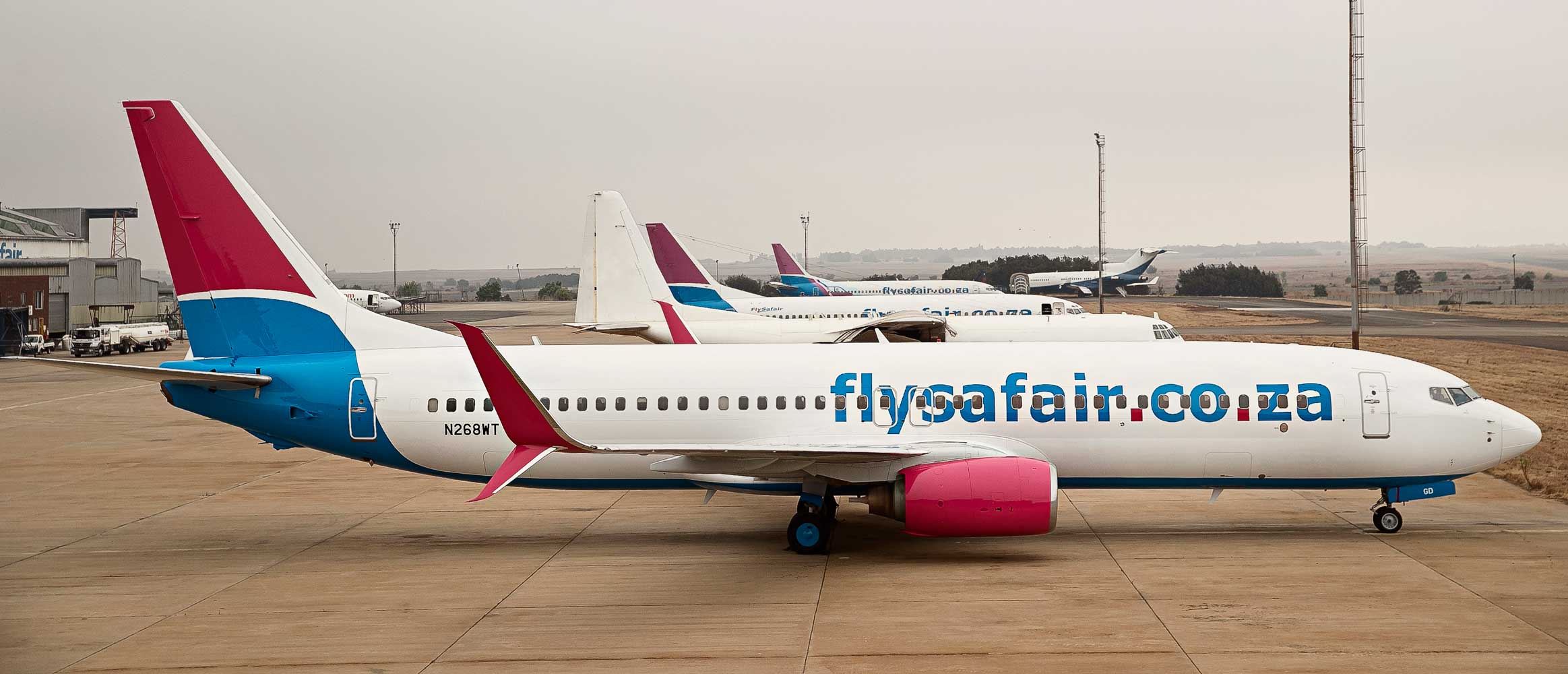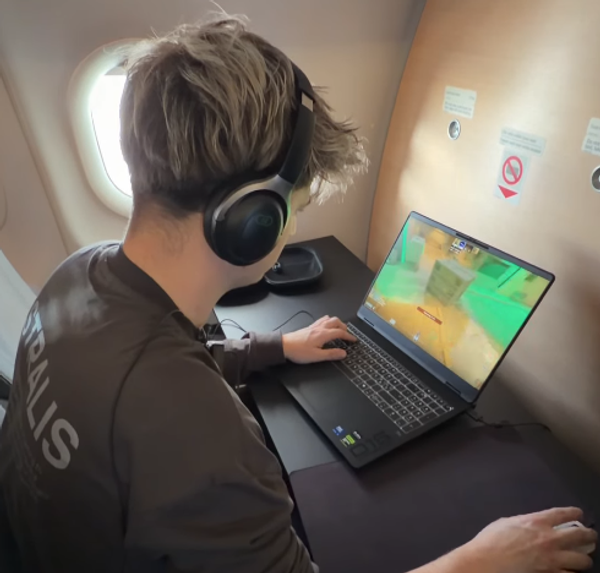FlySafair, the Johannesburg-based low-cost airline, is currently under review by the International Air Services Council (IASC), a body under the Ministry of Transport responsible for managing traffic rights within South Africa. This investigation comes weeks after FlySafair celebrated its tenth anniversary and centers on its foreign ownership structure, which may violate local aviation laws.
According to local press, in a leaked letter dated October 31, 2024, the council noted that FlySafair’s ownership structure does not meet South African regulations, which require domestic airlines to be primarily owned by South African citizens or entities.
South African law mandates at least 75% local ownership for domestic airlines, yet FlySafair is effectively 74.86% owned by ASL Aviation Group, based in Ireland.
This ownership breakdown includes a 49.86% share held by Safair Investment Trust, which is eventually 100% owned by ASL Aviation Holdings, and a 25% portion held by ASL Aviation. The remaining 25.14% of Safair Operations is owned by a South African employee-owned vehicle called B4i Safair (Pty) Ltd.

The IASC’s inquiry, which began in late 2022, stems from complaints filed by rival airlines Airlink and Global Aviation (operator of LIFT Airlines), who formally raised the ownership issue with the council earlier this year on February 6, 2024, and February 16, 2024, respectively.
In response to the IASC’s ruling, FlySafair has maintained that its ownership structure complies with the law’s requirements. “We take the IASC’s decision seriously and await further communication. Supported by senior legal advice, we believe our structure remains within regulatory bounds,” the airline stated.
FlySafair argues that the current structure meets both the letter and spirit of the law, pointing out that Safari Investment Trust owns 49.86%, while B4i Safair, an employee ownership scheme, holds 25.14%.
To prevent potential sanctions, FlySafair has also sought intervention from the Pretoria High Court, arguing that differing interpretations of foreign ownership laws could create instability within the aviation industry and disrupt travel.
FlySafair’s CEO, Elmar Conradie, acknowledged in an internal memo to employees that while the ruling was disappointing, it offers progress in resolving a long-standing issue.
“This is not the outcome we had hoped for, but we’re relieved to see forward movement. We believe we’ve complied with foreign ownership limits and sought senior legal advice at every step,” he wrote, assuring staff that FlySafair is committed to compliance and that any resolution will minimize business impact.

In addition to the IASC case, FlySafair faces a separate challenge with the Air Services Licensing Council (ASLC), which oversees domestic airline licensing and reviews the airline’s ownership structure.
The outcome of this legal process could have significant consequences for FlySafair’s international operations. Potential sanctions from the IASC range from fines to revoking the airline’s permits, a decision expected by the end of November.
Founded in October 2013, FlySafair began commercial operations in October 2014. In addition to its domestic network, covering around ten routes, the airline operates international flights to Zimbabwe, Zambia, Tanzania, and Mauritius.
FlySafair—operating under its parent brand Safair—boasts a 30 Boeing 737-800s fleet. This makes it the largest operator of the type in Africa, alongside EgyptAir. The airline also operates five Boeing 737-400s and one 737-400F, which it plans to retire shortly.
British Airways Axes Hot Meals on Key Business Routes in New Cost-Cutting Drive » Avelo’s Fleet Downsizing, Base Closures, and Exit from ICE Charter Sector Signal a New Era of Efficiency » This Week in Aviation: The 10 Stories That Mattered Most »
Comments (0)
Add Your Comment
SHARE
TAGS
NEWS FlysafairLow-cost airlineASL AviationSouth AfricaB737-800IASCRECENTLY PUBLISHED
 SAS Hosts Air-to-Ground CS:GO Match at 30,000 Feet via Starlink
On January 14, to prove the low-latency capabilities of the SpaceX-powered system, the airline hosted a live multiplayer Counter-Strike video game tournament at 30,000 feet.
NEWS
READ MORE »
SAS Hosts Air-to-Ground CS:GO Match at 30,000 Feet via Starlink
On January 14, to prove the low-latency capabilities of the SpaceX-powered system, the airline hosted a live multiplayer Counter-Strike video game tournament at 30,000 feet.
NEWS
READ MORE »
 Student Education as a Pathway to an Aviation Career
Explore how to become a pilot through aviation degree programs and flight school. Learn about requirements, costs, and career options.
INFORMATIONAL
READ MORE »
Student Education as a Pathway to an Aviation Career
Explore how to become a pilot through aviation degree programs and flight school. Learn about requirements, costs, and career options.
INFORMATIONAL
READ MORE »
 EVA Air to Launch Nonstop Flights to Washington-Dulles
EVA Air confirmed on January 12 that it will launch its first nonstop service between Taipei and Washington-Dulles International Airport in July 2026.
ROUTES
READ MORE »
EVA Air to Launch Nonstop Flights to Washington-Dulles
EVA Air confirmed on January 12 that it will launch its first nonstop service between Taipei and Washington-Dulles International Airport in July 2026.
ROUTES
READ MORE »



